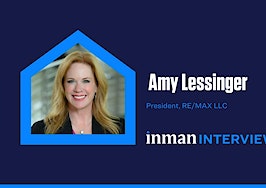At Inman Connect Las Vegas, July 30-Aug. 1, 2024, the noise and misinformation will be banished, all your big questions will be answered, and new business opportunities will be revealed. Join us.
As the National Association of Realtors (NAR) settlement sends shockwaves through the industry, dogmatic camps are forming. On one side are those who argue that little will change. “The transaction is complicated,” they are heard to say. “Consumers will be at a disadvantage without us,” is the refrain of others. And then there is always the old standby, “There will always be a need for agents.”
On the other hand, some proclaim this to be the end. “Realtors are no longer necessary,” they say. “Consumers can get all the information they need through Zillow and Redfin.” Some sound downright apocalyptic, “The day of reckoning is here!”
The trouble with being dogmatic is that you grow blinders, but taking a side will not determine the future.
As agents, we must realize that the market doesn’t care what either camp believes, no matter how entrenched they are. Instead, what matters — and has always mattered — is how great agents react to the constantly changing marketplace.
Fortune telling
While none of us has a crystal ball, we do have a view of history to help us see the playing field evolve. In fact, the winners in our industry over the past 50 years have been those who have seen patterns of marketplace change and then pivoted to turn them into opportunities.
Those who understand what these visionaries saw and how they approached the unsettling times they faced are poised to unlock the key to the next evolutionary phase in real estate.
Real Estate 1.0: The shift to standardization
From the early 1970s to the early 2000s, the real estate industry went through an era of incredible standardization. The forms used to write contracts, how brokerages shared information in MLS agreements, and even the reconceptualization of buyer agency dramatically shaped industry norms.
As a result, the industry established new agent education standards, new laws standardized consumer care, and it became common practice to teach new agents how to drum up business using repeatable scripts.
Such standardization allowed for unprecedented scaling when it came to the number of agents. At the national level, in the first six decades of NAR’s existence, from 1908 to 1969, the number of Realtor members grew from 1,646 initial members to a modest 91,625. But over the next 35 years, from 1970 to 2005, the number of Realtors increased to 1,271,057.
Real Estate 1.0’s standardization was to our industry what Henry Ford’s assembly line was to cars. It fueled an annual NAR growth rate over 20 times that of the previous period and ballooned the overall number of agents tenfold in a generation.
Broker entrepreneurs saw the opportunity this population boom provided and created large-scale brokerages. Family-run giants, such as Howard Hanna, William Raveis, and Long and Foster pulled in thousands of agents regionally. At the same time, franchise visionaries, including Art Bartlett, Gary Keller, and Dave Liniger partnered with local agents across the U.S. and abroad.
Big business also contains big data. As technology has made the internet faster, agents cannot just list data but also quickly search for data and enhance it with images that can load quickly. This data revolution led to a new transformation.
Real Estate 2.0: The development of democratization
In 2005, I was in a room of veteran agents and brokers who had built admirable businesses. Between glances at our Blackberries and Palm Pilots, we discussed a new website called Zillow.
“The estimates are lousy,” one agent chimed in. “These guys aren’t even in the industry!” another proclaimed. But the question no one dared whisper, but that every one of us was asking ourselves, was this: “If consumers have the listings, how will we protect our value?”
We had entered the age of democratization of listing data. The technologists behind Zillow, Trulia and myriad other sites that sprang up in the race for consumer eyeballs transformed the experience of buying and selling a home.
In the previous era, agents were taught that “listers last.” But now that the consumers who used to call the listing agent for information could search anonymously, the value of inventory diminished for listing agents. Zillow had begun to capture this lead flow by rerouting consumers to the highest bidder.
New and predictable lead sources allowed the agent-led team to scale and become less dependent on brokerage brands, driving down brokerage margins. With this increase in agent negotiation power, the table stakes to play the game of brokerage changed.
According to a Real Trends study, between 2012 and 2022, the size of the average brokerage office shot up 84 percent, from 54 to nearly 101 agents on the roster.
New technology-enabled, lean brokerage models like eXp, Fathom, and REAL cut off the fat and overhead of office space and recruiter salaries, then baked in virtual training. Agent count thresholds, which had taken the fast-growth brands of 1.0 decades to build, were achieved by lean models in mere years.
Is real estate 3.0 on the horizon?
If the impact of 1.0’s standardization-driven growth felt like the exciting drop at the beginning of a roller coaster ride, 2.0’s democratization was the acceleration through the big loops and turns.
These dramatic changes in direction and speed were unsettling and even disruptive, if you were not braced for them. But those who were prepared didn’t just enjoy the ride but made the most of the experience.
Industry veterans who have lived through this wild ride sense that something is coming around the bend — not just another barrel roll but an entire reimagining of the continuum.
It’s my belief that our industry is poised for a transformative change equal to that of 1.0 and 2.0. This change will require embracing new rules, being a pacesetter when it comes to the AI revolution, and quickly adapting to evolving consumer behavior.
For some agents, the changes coming will be too much to bear, but for those poised to take the real estate 3.0 plunge, it will be an entirely new and exciting ride.
Patrick Kilner is the founder and CEO of TowerHill Realty. You can follow him on LinkedIn.













